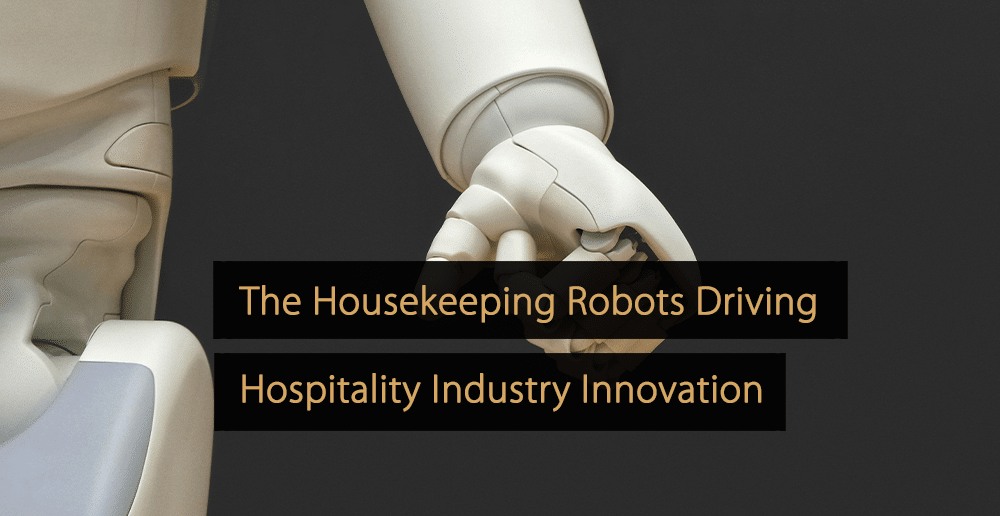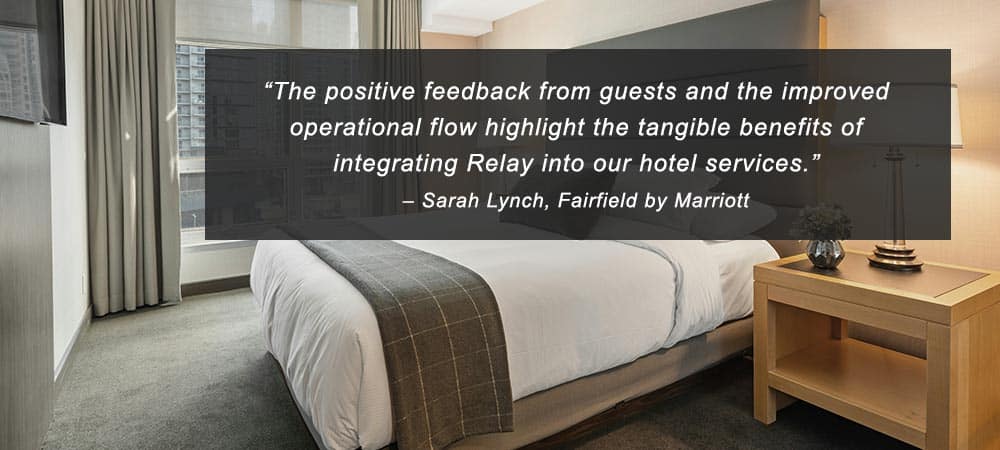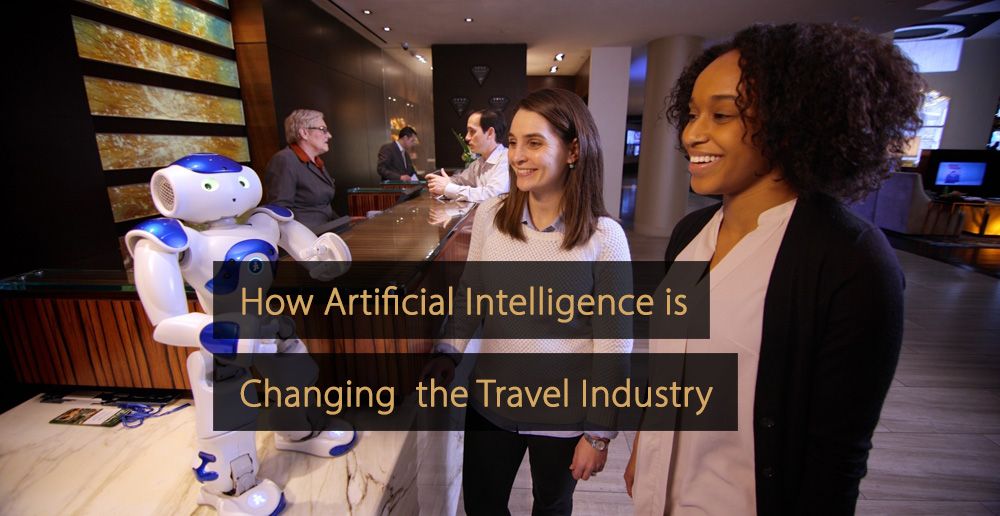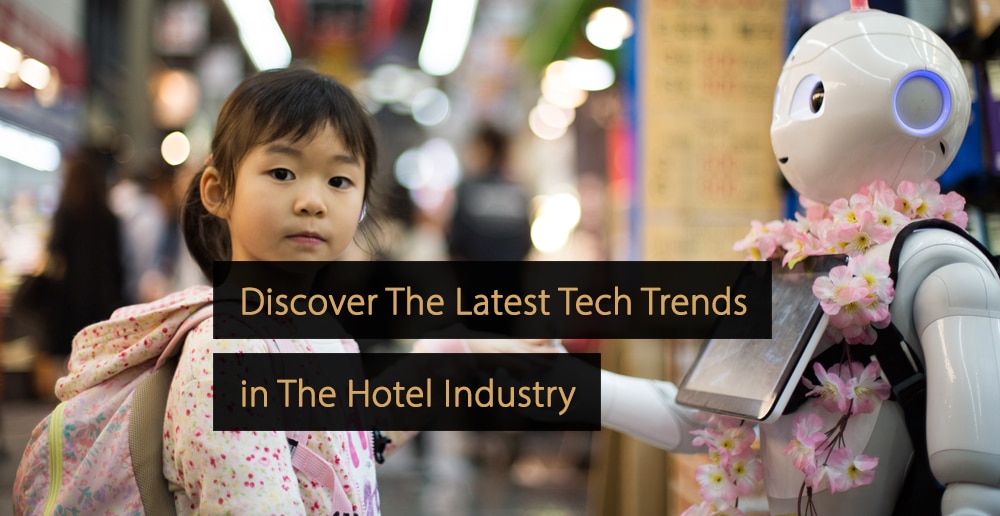Housekeeping robots are machines capable of carrying out tasks typically associated with housekeeping departments, such as cleaning, tidying and moving objects. These machines are used to reduce the workload of housekeeping staff and improve operational efficiency. In this article, you can learn more about housekeeping robots and explore examples of some of the most innovative robots in use right now.
Table of Contents:
- Understanding Robotics in the Hospitality Industry
- What is a Housekeeping Robot in the Hospitality Industry?
- Why is a Housekeeping Robot Valuable or Important?
- 8 Examples of Innovative Housekeeping Robots
- Future Applications of Robotics Technology in the Hospitality Sector
- The Main Challenges of Using Robots in Hotels
- The Various Robots Taking the Hotel Industry By Storm
- The Latest Technology Used by Housekeeping Departments
Understanding Robotics in the Hospitality Industry
Within the hospitality industry, robotics generally refers to creating and using machines or mechanical devices that can behave intelligently and carry out autonomous or semi-autonomous tasks. In most cases, these robots are used by hospitality industry businesses to improve productivity and reduce staff workloads.
Examples of the use of robotics within hospitality include housekeeping robots and robot receptionists. Robotics technology is improving all the time and as robots become more dependable, their use in hospitality is increasing. Advances in machine learning and artificial intelligence technology have accelerated improvements.
The most advanced robots hospitality companies use can replicate tasks that traditionally require human involvement. This has the potential to free up time for human staff to focus on more complex tasks and can also ensure tasks can be carried out on a 24/7 basis, even when no employees are available.
What is a Housekeeping Robot in the Hospitality Industry?
A housekeeping robot is a machine specifically designed to carry out tasks associated with the housekeeping department in a hotel or similar business. Examples of tasks a robot housekeeper might perform include vacuum cleaning, tidying, cleaning windows, and moving or delivering objects or materials.
Housekeeping robots, like other robots used in the hospitality industry, use advanced technology, including artificial intelligence, machine learning, motion sensors, and navigation sensors. This technology allows the robots to move intelligently around an environment, detect objects, sense movement, and perform housekeeping duties.
Many housekeeping robots can perform their core tasks accurately with minimal human intervention, and some can work alongside humans, boosting overall productivity for the housekeeping team. Most housekeeping robots used by hospitality brands are battery-powered, meaning they need to be charged between uses.
Why is a Housekeeping Robot Valuable or Important?
Hotel housekeeping robots can be an invaluable form of hospitality technology because they have the potential to dramatically reduce the workload of housekeeping staff. Not only can the housekeeping robot perform the actions it was designed to perform effectively, but this reduced workload can also ensure that other tasks are performed to a high standard.
A robot housekeeper will pay off in the long term as an investment because it means more work can be carried out without needing to recruit new staff and pay their salaries. It is also important to understand that robots are extremely reliable. They can be used day after day and, unlike humans, will not become sick or require holidays.
Ultimately, housekeeping robots are best used to assist rather than replace housekeeping staff. They can free up staff to focus on duties that require human intelligence, creativity, and ingenuity. However, in some cases, they can also boost accuracy and reduce human error, improving the guest experience.
8 Examples of Innovative Housekeeping Robots
This section covers some of the most popular and groundbreaking housekeeping robots on the market, including their uses, capabilities, and underlying technology.
1. Relay Robots
Relay Robots are fully autonomous delivery and housekeeping robots created by Relay Robotics, a company based in San Jose, California. These robots are used by several hotel brands, including Crown Plaza Hotels & Resorts, and are equipped with motion sensors and autonomous navigation technology.
This allows the robots to function as delivery assistants, easily navigating a hotel, avoiding people and obstacles, and transporting tools and equipment where they need to go. Not only can this help to reduce time spent traveling back and forth to acquire tools, the robots can also be used to take items like towels and cleaning products to guests.
Video: Relay Delivers Anywhere
2. Whiz Robots
Whiz Robots is a line of housekeeping robots that resulted from a collaboration between SoftBank Robotics and Canon Solutions America. These robots are designed for commercial settings, including businesses in the hotel industry, where they function as robot vacuum cleaners, powered by artificial intelligence technology.
Impressively, Whiz Robots combine the ability to automatically navigate locations with the capacity to learn up to 600 cleaning routes. One of these robots can clean 1,500 square meters on a single charge. Its cleaning performance is aided by its BrainOS software, which helps the machine to vacuum intelligently and alleviate pressure on staff.
Video: Whiz Connect
3. AURA Robots
Used by Millennium Hotels and Resorts, including at the M Social Hotel in Singapore, AURA Robots are autonomous service delivery robots, created by Savioke. These robots were originally designed to carry out room service deliveries for guests, but they can be used as housekeeping robots, too, delivering fresh towels or items for housekeeping staff.
AURA Robots can navigate hotels, use elevators, and reach the location they are told to go to. They can be filled with items and function as part of a team. For instance, one housekeeping team member can load the robot with items and then tell the robot to take them to another team member at the other end of the hotel.
Video: Aura- A robotic way of room service
4. Tailos (formerly MaidBot)
Tailos is a company based in Austin, Texas, that provides various automated solutions for the hospitality industry, including hotel housekeeping robots. Formerly known as MaidBot, the company’s various products include Rosie, a robot vacuum cleaner with various advanced features.
Rosie can clean more than 1,000 square feet per hour and uses onboard sensors and environmental data to improve performance. The robot can also collect valuable information about your hotel, such as the temperature in different locations and the air quality, while multiple Tailos robots can form a team.
Video: Tailos Promo
5. TUG Robots by Aethon
TUG Robots are autonomous mobile delivery solutions created by Aethon and intended for use in hospitality and healthcare settings. Within the hospitality field, they are primarily deployed as housekeeping robots, with a particular focus on boosting efficiency when moving laundry to and from hotel rooms.
Crucially, the robots can navigate hotels automatically, open doors, and call and ride elevators. TUG Robots can also transport 635 kg of laundry, tools, and other materials per trip. This potentially frees up housekeeping staff to perform their core duties, with the robots handling the movement of materials.
Video: Aethon TUG Robot
6. LG CLOi ServeBot
LG’s CLOi ServeBot is primarily designed to function as a food service robot, but it can also be used just as easily as a hotel housekeeping robot. It can carry towels, bed sheets, soap, toilet rolls, and other items from one location to another with minimal human involvement, making it an ideal companion for your housekeeping team.
The robot is equipped with a 3D camera, and ToF and LiDAR sensors, allowing it to recognize people and objects, avoid collisions, adjust routes in real-time and easily navigate through even the busiest areas of your hotel. It has multiple shelves for carrying items and can automatically sense when items have been removed. Furthermore, the LG CLOi ServeBot has an impressive 11-hour continuous operating time from a 5-hour charge.
Video: LG CLOi ServeBot : More Reliable Serving Specialistㅣ LG
7. WINBOT by Ecovacs
If you are seeking a robot housekeeper that can carry out tasks beyond moving items and vacuuming floors, the WINBOT from Ecovacs may be just what you are looking for. These housekeeping robots function as autonomous window cleaners, using a large microfiber cleaning pad to carry out a variety of types of window cleaning.
WINBOT can remove stains, climb automatically, detect edges, and plan the ideal path to cover windows of all sizes. It can carry out fast cleaning, deep cleaning, edge cleaning, and more while avoiding streaks on your windows. Meanwhile, in addition to windows, WINBOT can also be used to clean shower doors and other similar surfaces.
Video: WINBOT W1 PRO How to use
8. SOMATIC
SOMATIC is a New York-based company offering AI-powered housekeeping robots that can efficiently and autonomously clean bathrooms. This cleaning includes mopping, vacuuming, and disinfecting surfaces, meaning the robot can be relied upon when no human housekeeping employee is available to clean.
It is estimated that SOMATIC can be deployed in a hotel for around a third of the average salary paid to a janitor. While it is not able to contend with truly exceptional cleaning jobs, it should not replace humans entirely; it may be preferable to hiring additional staff who will require more pay along with employee benefits.
Video: SOMATIC’s New Version of Its Bathroom Cleaning Robot
Future Applications of Robotics Technology in the Hospitality Sector
In the years to come, the use of housekeeping robots and other robotics technology is set to become one of the major hospitality trends, especially as these robots become more reliable, with longer battery life. Additionally, the use of robotics is likely to grow further as the technology becomes more affordable.
The anticipated growth of robotics in hospitality is largely the result of advances in AI and machine learning, making robots a more dependable option for automating key hotel tasks. This appeals to hotel owners because it allows them to reduce labor costs and improve efficiency and service standards.
The Main Challenges of Using Robots in Hotels
- Upfront Costs: While housekeeping robots and other similar machines can help hotels save money in the long run, the initial costs are quite high. This can be especially difficult for smaller hotels, with limited expendable income.
- Integration: Once the housekeeping robots have been acquired, integrating them into the workforce can present challenges. Staff need to learn how to use the robots, and team leaders need to understand their limitations so they can appropriately allocate tasks to robots and humans.
- Maintenance: Managing a collection of housekeeping robots will require regular maintenance. This includes charging the robots between uses, ensuring they have up-to-date software, and taking the time to fix any hardware problems or physical damage that may occur over time.
- Lack of Guidelines: As the use of robotics technology is relatively new, there are limitations in accessing guidelines and assistance for implementing the technology in tried and tested ways.
The Various Robots Taking the Hotel Industry By Storm
Housekeeping robots are just one example of robotics technology used in the hotel industry. Other common examples include room service robots and greeting robots. Meanwhile, many robots used within the restaurant industry, such as robot waiters and robot cooks, are also being deployed by hotels.
In the “Hotel Robots: An Overview of Different Robots Used in Hotels” article, you will find a more in-depth breakdown of the various types of robots used in the industry, along with examples of hotels using these robots.
The Latest Technology Used by Housekeeping Departments
The use of housekeeping robots is growing all the time, but in addition to investing in a robot housekeeper, you may also want to consider some of the other cutting-edge technology being used by housekeeping teams, including UV-C light cleaning technology, modern housekeeping trolleys and apps with voice control options.
In the “Housekeeping Technology; The Latest Tech Used in Hotel Housekeeping” article, you can access more information about emerging innovations and housekeeping trends, so you can keep up with rival hotels.
The use of robotics technology in hospitality settings is still in its relative infancy, but as advances in AI, machine learning, and battery technology continue, housekeeping robots are becoming more popular, viable, and cost-effective. In addition to cleaning surfaces, robots are also now being used to transport equipment and directly assist staff.
More Tips to Grow Your Business
Revfine.com is the leading knowledge platform for the hospitality and travel industry. Professionals use our insights, strategies, and actionable tips to get inspired, optimize revenue, innovate processes, and improve customer experience.Explore expert advice on management, marketing, revenue management, operations, software, and technology in our dedicated Hotel, Hospitality, and Travel & Tourism categories.
This article is written by:
Hi, I am Martijn Barten, founder of Revfine.com. With 20 years of experience in the hospitality industry, I specialize in optimizing revenue by combining revenue management with marketing strategies. I have successfully developed, implemented, and managed revenue management and marketing strategies for individual properties and multi-property portfolios.










Leave A Comment